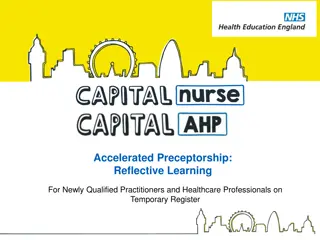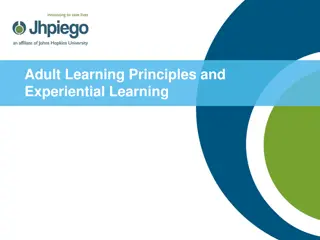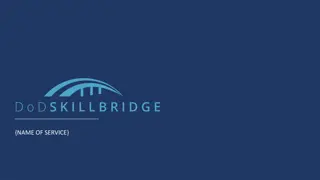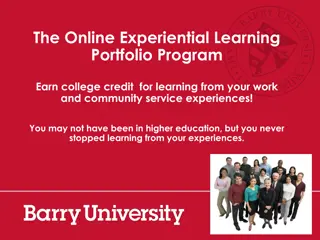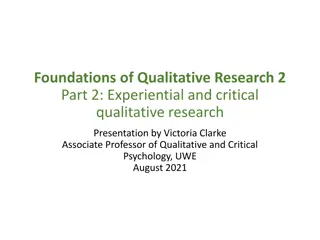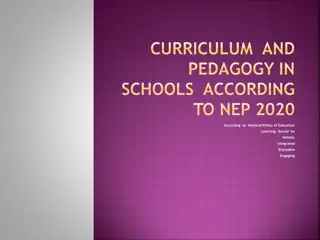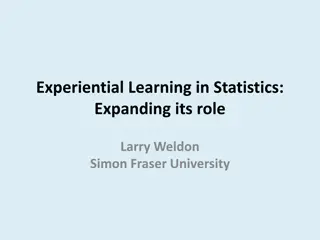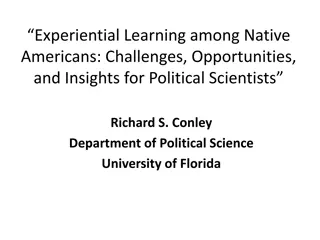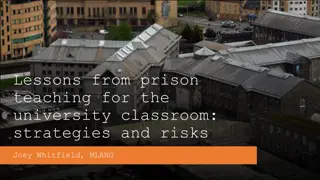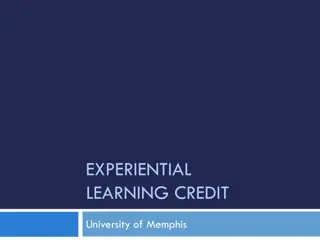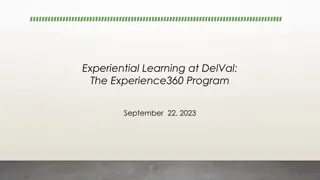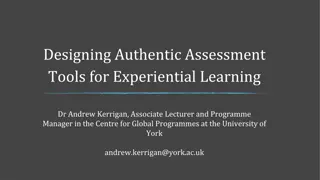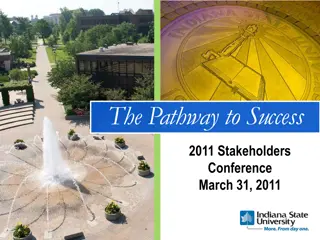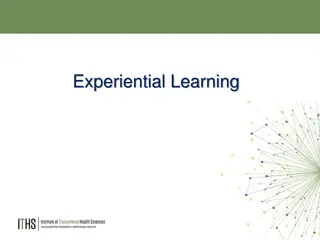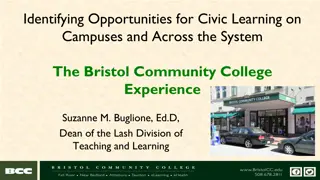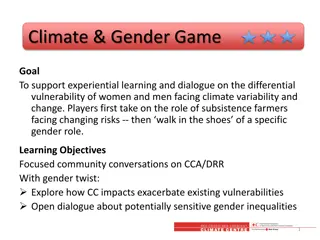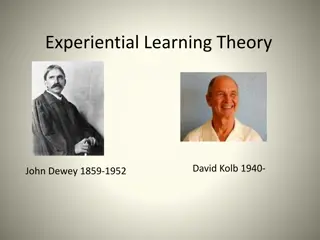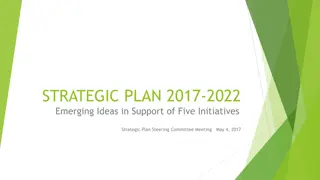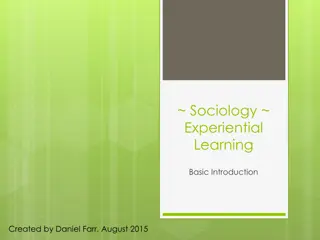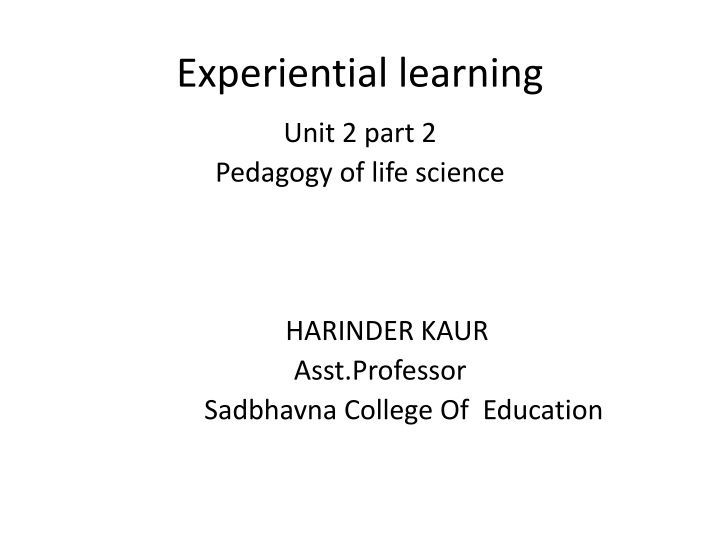
Engaging Pedagogy: Experiential Learning in Life Science Education
Explore the pedagogy of experiential learning in life science education with a focus on hands-on experiences, reflection, and active participation. Discover how learners can gain knowledge through direct experiences, reflection, and critical thinking, moving beyond traditional classroom settings to enhance learning outcomes.
Download Presentation

Please find below an Image/Link to download the presentation.
The content on the website is provided AS IS for your information and personal use only. It may not be sold, licensed, or shared on other websites without obtaining consent from the author. If you encounter any issues during the download, it is possible that the publisher has removed the file from their server.
You are allowed to download the files provided on this website for personal or commercial use, subject to the condition that they are used lawfully. All files are the property of their respective owners.
The content on the website is provided AS IS for your information and personal use only. It may not be sold, licensed, or shared on other websites without obtaining consent from the author.
E N D
Presentation Transcript
Experiential learning Unit 2 part 2 Pedagogy of life science HARINDER KAUR Asst.Professor Sadbhavna College Of Education
Experiential learning Experiential learning of learning through experience, and is more narrowly defined as reflection on doing". Hands-on learning experiential learning, but does not necessarily involve students reflecting on their product Experiential learning is concerned with more concrete issues related to the learner and the learning context. is the process "learning through can be a form of
Experiential learning Experiential learning entails a hands-on approach to learning that moves away from just the teacher at the front of the room imparting and transferring their knowledge to students. It makes learning an experience that moves beyond the classroom and strives to bring a more involved way of learning.
FOCUS OF Experiential learning Experiential learning focuses on the learning process for the individual. Example of experiential learning is going to the zoo and learning through observation and interaction with the zoo environment, as opposed to reading animals from the book. David Kolb's Experiential Learning Model 1.Active Experimentation. 2 Concrete Experience 3 Reflective Observation. 4 Abstract 5 Conceptualization
ELEMENTS Experiential learning can occur without a teacher and relates solely to the meaning making process of the individual's direct experience. However, though the gaining of knowledge is an inherent process that occurs naturally, a genuine learning experience requires certain elements. According to Kolb, knowledge is continuously gained through both personal and environmental experiences. Kolb states that in order to gain genuine knowledge from an experience, the learner must have four abilities: The learner must be willing to be actively involved in the experience; The learner must be able to reflect on the experience; The learner must possess and use analytical skills to conceptualize the experience; and The learner must possess decision making and problem solving skills in order to use the new ideas gained from the experience.
Benefits Experience real world: For example, students who major in Chemistry may have chances to interact with the chemical environment. Learners who have a desire to become businesspeople will have the opportunity to experience the manager position. Improved on-the-job performance: For example, municipal bus drivers trained via high-fidelity simulation training (instead of just classroom training) showed significant decreases in accidents and fuel consumption. Opportunities for creativity: There is always more than one solution for a problem in the real world. Students will have a better chance to learn that lesson when they get to interact with real life experiences

